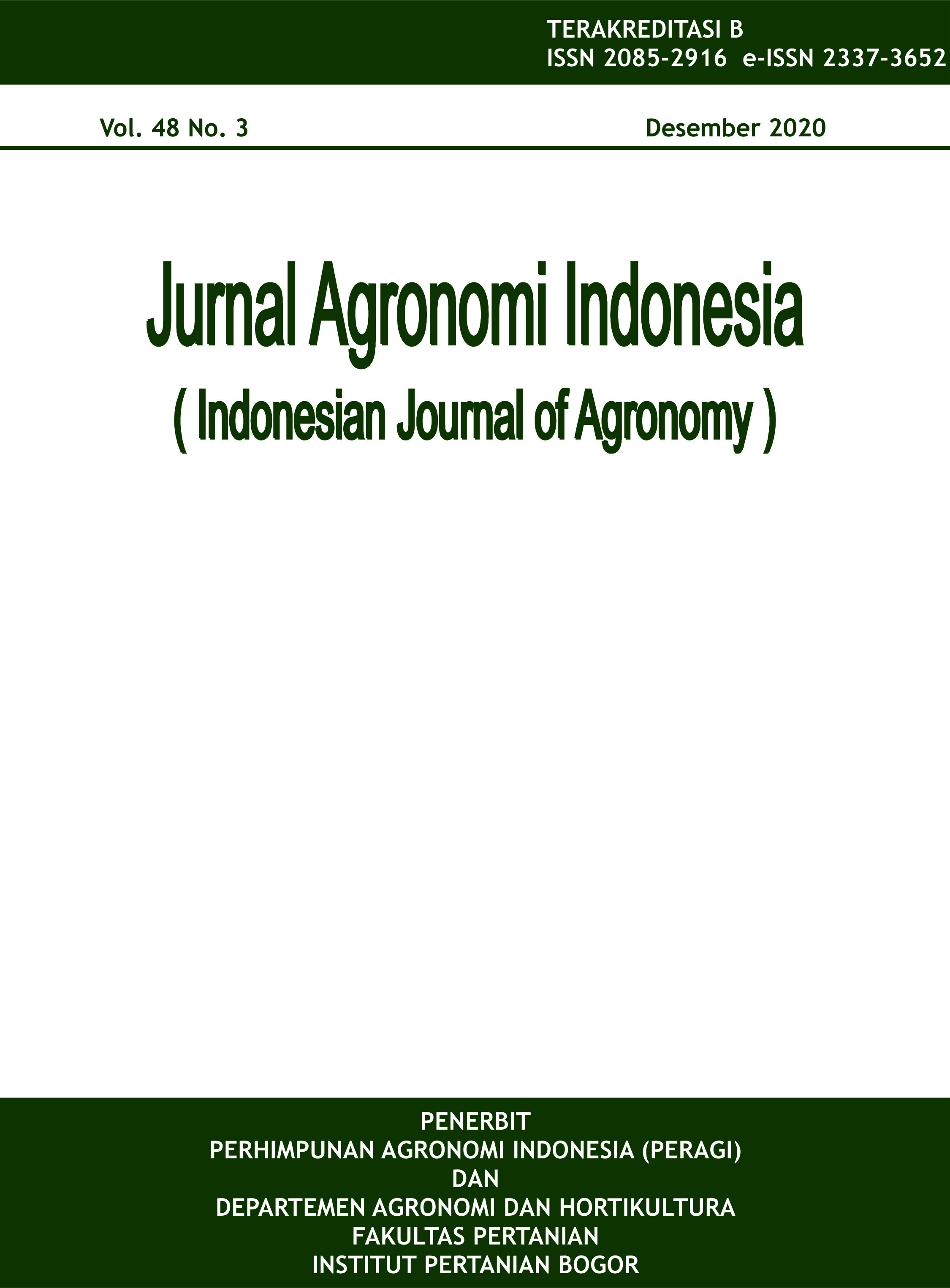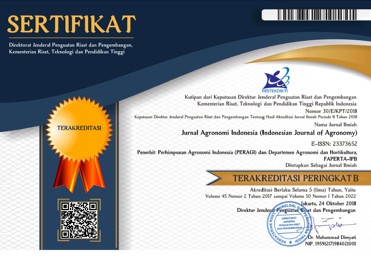Respon Plantlet In Vitro dan Induksi Ketahanan Bibit Phalaenopsis amabilis terhadap Dickeya dadantii Menggunakan Asam Salisilat
Abstract
Phalaenopsis is one of the most popular orchid genera because of its beautiful flower with high color variation and long flowering period. One of the problems in orchid cultivation is a bacterial soft-rot disease (SRD) caused by Dickeya dadantii. Based on the previous report, P. amabilis is one of the susceptible species to D. dadantii. Induced resistance by using Salicylic Acid (SA) could be an alternative method to control SRD in Phalaenopsis. The research was conducted from November 2018 to March 2019, at Tissue Culture Laboratory, Department of Agronomy and Horticulture, IPB University. The research consisted of two experiments. The first experiment aimed to evaluate the variability responses of in vitro plantlets (seedling) from self-pollination of P. amabilis against D. dadanti by detached leaf inoculation methods and to determine their resistance levels to D. dadantii. Seven out of 158 evaluated seedlings have a moderate resistance response to D. dadantii, while the rest were either susceptible or very susceptible. The second experiment aimed to assess the responses of P. amabilis seedlings to D. dadantii at one day after SA treatment (0, 15, 30, 45, 60, 75, and 90 ppm) using the intact leaf inoculation method. It used a randomized block complete design (RBCD). The SA concentration at 75 ppm was the best treatment to induce seedling resistance to soft rot pathogen D. dadantii. Plants treated with SA 75 ppm showed the lower colony forming unit (CFU and area under the disease progress curve (AUPDC) and higher peroxidase activity than other treatments.
Keywords: disease severity, inoculation method, intact leaf, detached-leaf, soft-rot disease













